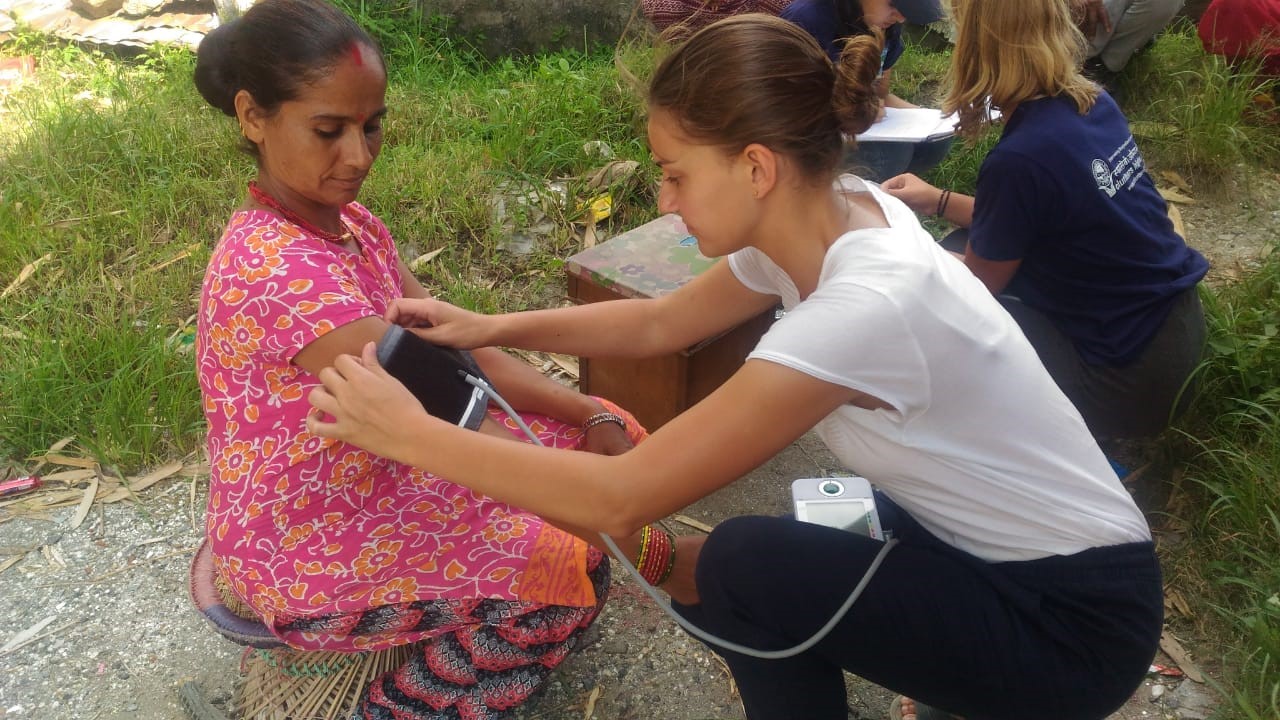Nepal’s constitution has ensured the following health rights:
(1) Every citizen shall have the right to free basic health services from the State, and no one shall be deprived of emergency health services.
(2) Every person shall have the right to get information about his or her medical treatment.
(3) Every citizen shall have equal access to health services.
(4) Every citizen shall have the right of access to clean drinking water and sanitation.
The relationship between health of general population and overall development of country is intertwined. Progress made in the health sector are considered the main indicators of development. Despite poverty and conflict in past decades, Nepal has achieved remarkable success in the health sector. In the context of health as a fundamental right of the people established by Nepal’s constitution, it is the responsibility of the nation to maintain the achievement made in controlling communicable diseases, to reduce infant and maternal mortality rate to the desired level, to control the ever increasing prevalence of noncommunicable diseases and timely management of unpredictable health disasters, and to provide quality health services to senior citizens, physically and mentally impaired people, single women especially poor and marginalized and vulnerable communities. The national health policy 2071, a complete revision of the national health policy 2048, has been introduced to promote, preserve, improve and rehabilitate the health of the people by preserving the earlier achievement, appropriately addressing the existing and newly emerging challenges and by optimally mobilizing all necessary resources through a publicly accountable efficient management.
Vision, Mission, Goal, Objectives and Policies of the National Health Policy 2071 are presented below:
Vision
All Nepalese citizens would be able to live productive and quality life; being physically, mentally, socially, and emotionally healthy.
Mission
Ensure the fundamental right of citizens to remain healthy through a strategic collaboration among service provider, beneficiaries, and stakeholders and optimum utilization of available resources.
Goal
To ensure health for all citizens as a fundamental human right by increasing access to quality health services through a provision of just and accountable health system.
Objectives
- To make available the free basic health services that existed as citizen’s fundamental right.
- To establish an effective and accountable health system with required medicines, equipment, technologies and qualified health professional for easy access to acquire quality health services by each citizen.
- To promote people’s participation in extending health services. For this, promote ownership of the private and cooperative sector by augmenting and managing their involvement.
Policies
- To make available in an effective manner the quality health services, established as a fundamental right, ensuring easy access within the reach of all citizens (universal health coverage) and provision of basic health services at free of cost.
- To plan produce, acquire, develop, and utilize necessary human resources to make health services affordable and effective.
- To develop the ayurvedic medicine system through the systematic management and utilization of available herbs in the country as well as safeguarding and systematic development of other existing complementary medicine systems.
- To aim at becoming self-sufficient in quality medicine and medical equipment through effortless and effective importation and utilization with emphasis on internal production.
- To utilize in policy formulation, program planning, medical and treatment system, the proven behaviors or practices obtained from researchers by enhancing the quality of research to international standard.
- To promote public health by giving high priority to education, information, and communication programs for transforming into practice the access to information and messages about health as a right to information.
- To reduce prevalence of malnutrition through promotion and usage of quality healthy foods.
- To ensure availability of quality health services through competent and accountable mechanism and system for coordination, monitoring and regulation.
- To ensure professional and quality service standard by making health related professional councils capable, professional, and accountable.
- To mainstreaming health in every policy of state by reinforcing collaboration with health-related various stakeholders.
- To ensure the right of citizens to live in healthy environment through effective control of environmental pollution for protection and promotion of health.
- To maintain good governance in the health sector through necessary policy, structure and management for delivery of quality health services.
- To promote public and private sectors partnership for systematic and quality development of health sector.
- To increase the investment in the health sector by state to ensure quality and accessible health services and to provide financial security to citizens for medical cost and as well as effectively utilize and manage financial resources obtained from private and non-government sector.
Reference – Glimpse of Annual Report Department of Health Services 2073/74 (2016/17)
We are contributing to meet national health goal through public health and medical care program. We have water sanitation and hygiene, school health education, public health education, health service delivery projects to improve the health status of the locals in rural communities.


 Member of
Member of